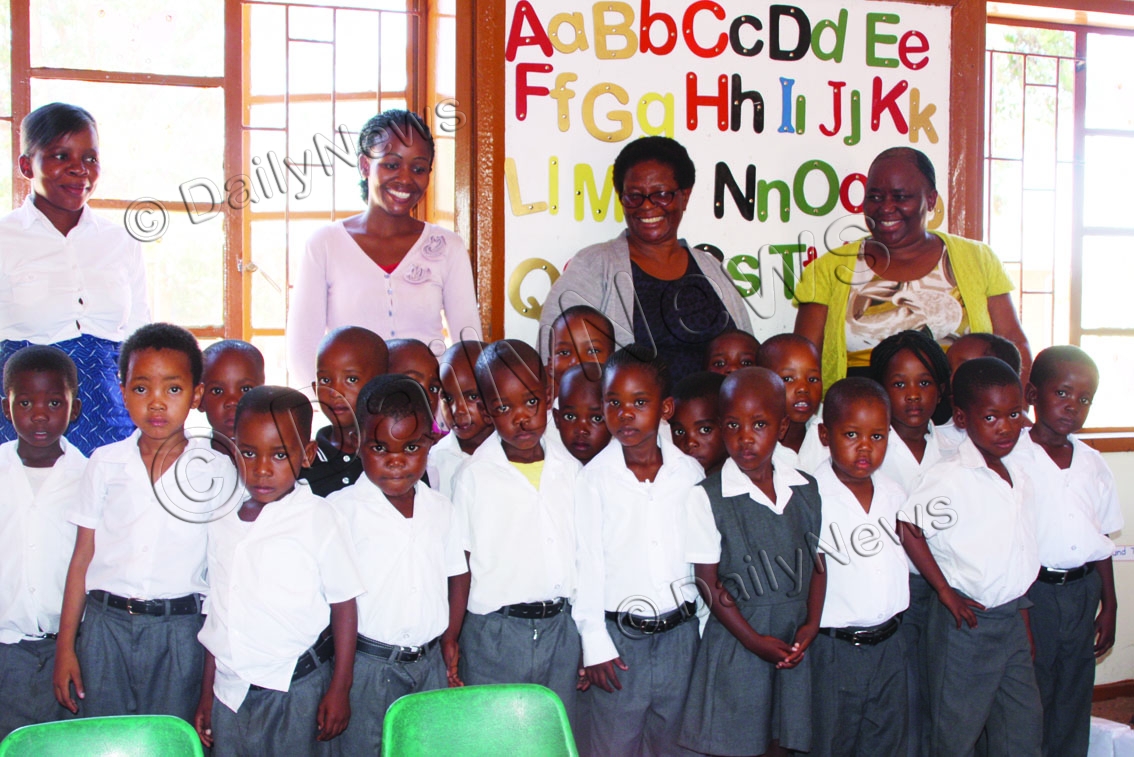Diloro Primary School benefits from Pre-school Programme
03 Aug 2015
As the name suggests, Diloro Primary School is located at Diloro village in Tswapong. The school is one of the first batch of schools to benefit from the pre-school programme.
The programme was a response to the Revised National Policy on Education (RNPE), of April 1994, which recommended universal access to pre-primary education.
Pre-school education is a form of a school-readiness programme for pupils waiting to be admitted into standard one the following year.
“This programme came at the right time because Diloro is a small village which has very few services, let alone a pre-school,” says Molelo.
Prior to introducing pre-primary education, the school admitted a high number of Standard Ones without pre-elementary education. Consequently, it took longer for such students to get settled in a school environment.
The school head says initially, it took about six weeks for Standard One pupils to adapt to the school environment and that impacted negatively on their first term study.
Molelo says her school extended the programme to neighbouring villages such as Kgagodi since they too had the challenge of lack of pre-schools, adding that the biggest challenge in those areas is transport.
All the 18 children who enrolled for reception class last year graduated to Standard One, and this year the total enrollment has increased to 23, she adds.
When the programme was introduced, school teachers and parents joined hands to make it a success, she says, adding “parents highly appreciate this programme and they always come up with initiatives to make it a success”.
Diloro Pre-primary School teacher and also deputy school head, Thato Mosweu, also reckons that kindergartens expose children to school environment and culture.
Mosweu says the programme also helps children to develop social skills which enable them to interact easily with others.
A pre-primary education curriculum is in place and has been divided into seven learning areas; namely physical and creative arts, language development and early literacy, health nutrition and safety, moral and spiritual development, personal, emotional and social development, mathematical thinking and scientific thinking.
Unlike upper classes where children are taught through reading and writing, reception classes learn through play.
In scientific thinking, for instance, the playschool teacher says children use their senses and explain what they see or observe to open up their scope.
Teacher/parent relationship is also encouraged. As such, teachers and parents have joined hands to make the programme a success, notes Mosweu.
Parents and teachers have also donated toys for the reception class besides creating a sick bay in case children are not well.
“Parents are very cooperative and willing to come up with initiatives to create a conducive environment for learning,” she says.
The medium of instruction is English, and this is done deliberately to introduce the language early because most subjects are taught in English at later stages of learning.
Therefore, the tiny tots must be ready as they progress through learning stages. Ends
Source : BOPA
Author : Kgotsofalang Botsang
Location : Palapye
Event : Interview
Date : 03 Aug 2015






